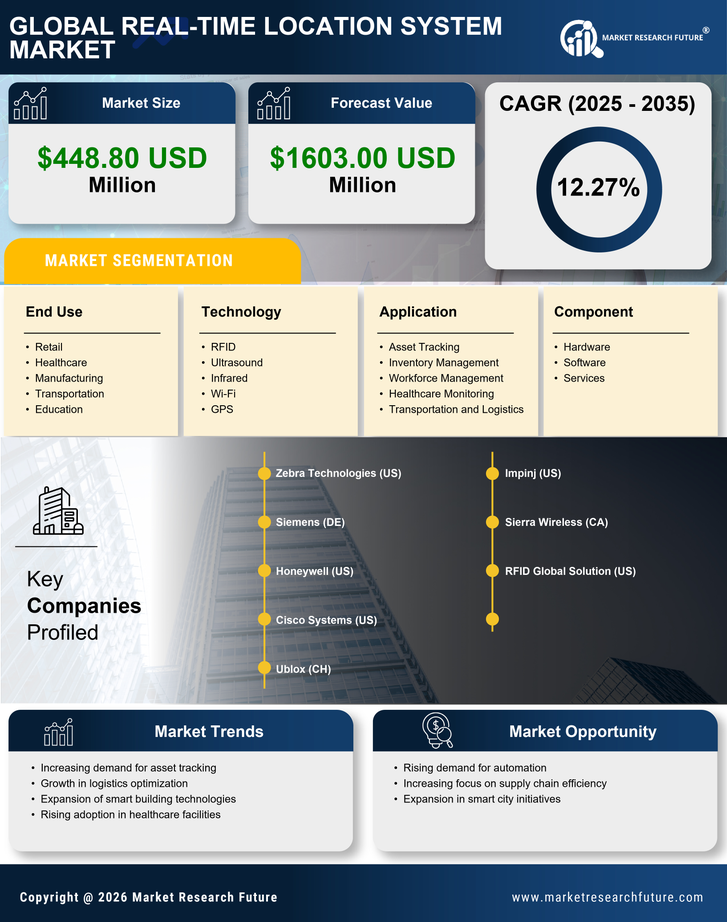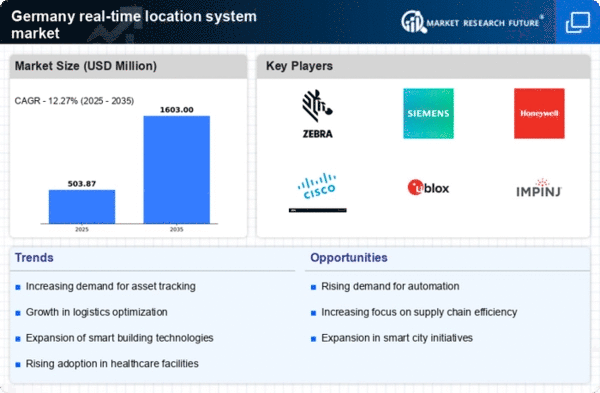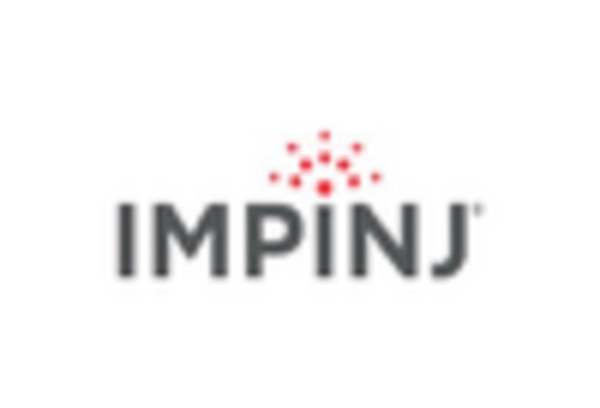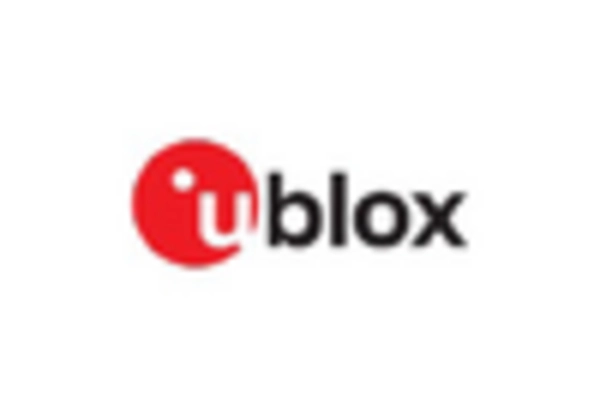Increased Focus on Safety and Security
Safety and security concerns are driving the adoption of real time-location systems across various sectors in Germany. Organizations are increasingly implementing these systems to monitor the location of personnel and assets, thereby enhancing workplace safety. For instance, in the construction and mining industries, real time-location systems are utilized to ensure that workers are safe and accounted for in hazardous environments. This focus on safety is reflected in the market, which is expected to grow by 20% in the next few years as companies prioritize employee welfare and compliance with safety regulations. The real-time location system market is thus positioned to benefit from this heightened awareness.
Rising Demand for Smart City Initiatives
The push towards smart city initiatives in Germany is significantly influencing the real-time location system market. Municipalities are increasingly investing in smart infrastructure that incorporates real time-location technologies to improve urban mobility and public services. For example, real time tracking of public transportation systems enhances efficiency and user experience. As cities aim to reduce congestion and improve resource management, the integration of real time-location systems is becoming a strategic priority. This trend is expected to drive market growth, with projections indicating an increase in investment in smart city projects by 30% over the next five years, thereby benefiting the real time-location-system market.
Growing Demand for Asset Tracking Solutions
The real-time location system market in Germany is experiencing a notable surge in demand for asset tracking solutions. Industries such as manufacturing, healthcare, and retail are increasingly adopting these systems to enhance operational efficiency and reduce losses. According to recent data, the asset tracking segment is projected to grow at a CAGR of approximately 15% over the next five years. This growth is driven by the need for real-time visibility of assets, which helps organizations optimize inventory management and improve customer service. As companies seek to streamline their operations, the integration of real time-location systems becomes essential, thereby propelling the market forward.
Advancements in Technology and Infrastructure
Technological advancements play a pivotal role in shaping the real-time location system market in Germany. The proliferation of high-speed internet and the expansion of 5G networks are facilitating the deployment of more sophisticated location-based services. Enhanced connectivity allows for more accurate tracking and data collection, which is crucial for industries such as logistics and transportation. Furthermore, the integration of artificial intelligence and machine learning with real time-location systems is expected to enhance predictive analytics capabilities. This technological evolution is likely to attract investments, with the market anticipated to reach a valuation of €1 billion by 2027, indicating robust growth prospects.
Evolving Consumer Expectations and Experiences
Consumer expectations in Germany are evolving, leading to a greater emphasis on personalized experiences facilitated by real time-location systems. Retailers are leveraging these technologies to provide tailored services, such as location-based promotions and enhanced customer engagement. The shift towards omnichannel retailing necessitates the use of real time-location systems to track customer behavior and preferences effectively. As a result, the market is likely to see a growth rate of 18% as businesses strive to meet these changing consumer demands. The real-time location system market is thus positioned to capitalize on this trend, as companies seek to enhance customer satisfaction and loyalty.

















